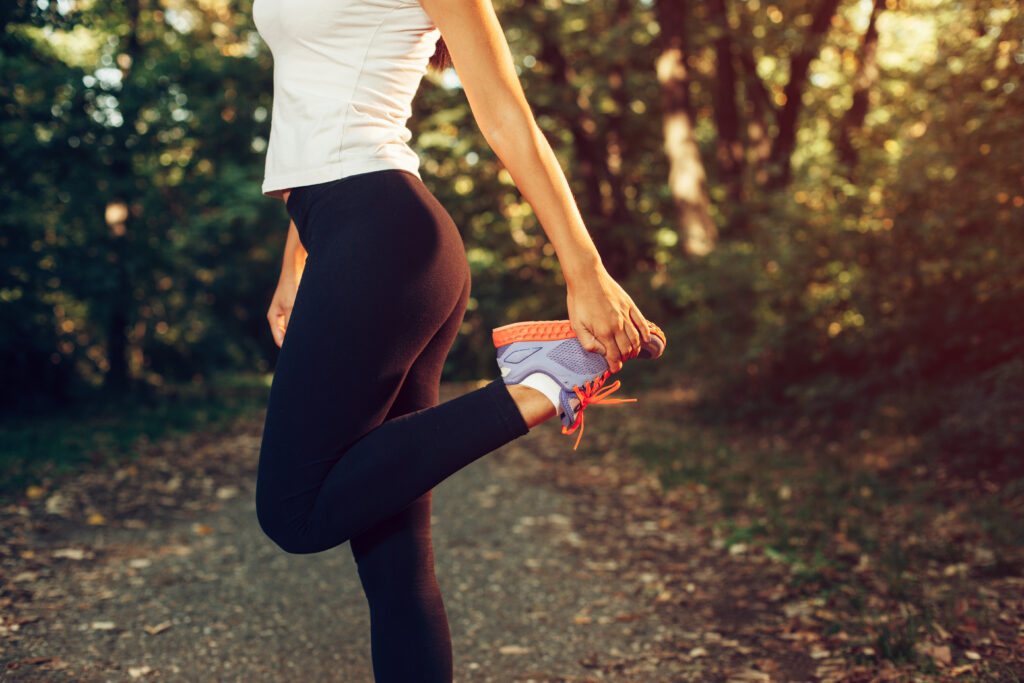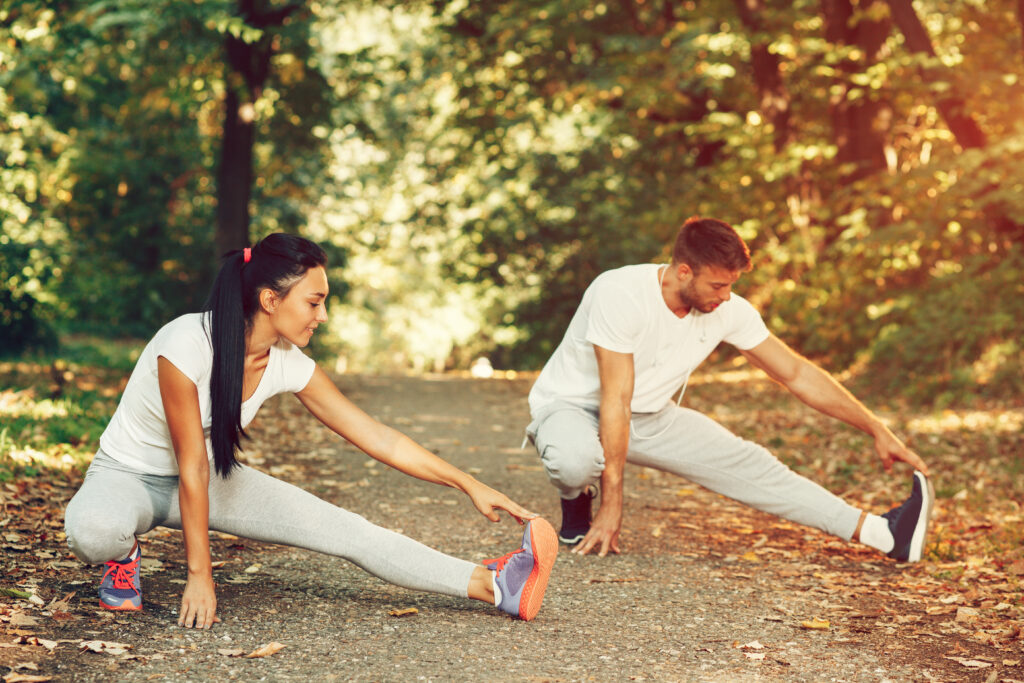A good, long run can re-energize you, help you to burn some calories, and even clear your mind. If, after that run, you have hip pain, that can make you feel defeated and less capable of keeping to a consistent running schedule. Don’t ignore it. Instead, learn what causes hip pain after running and what you can do to alleviate it, giving you back the ability to take to the road with confidence.
Can Running Cause Hip Pain?
Yes, running can cause hip pain for a number of reasons. Since the hip is a large joint, it’s designed to be very resilient to damage and typically provides stability for the entire body. It also can help ensure you’re running efficiently without overusing muscle groups that can lead to injury. So if it’s so strong and durable like this, why do you have pain?
Muscle Strain
A common cause of hip pain after running is muscle and tendon inflammation and damage. Stretching the muscle or tendon too far can cause this pain. It’s quite a common sport-related injury and typically will improve over time with rest. You may have some swelling in the area, and the muscle may feel weak and stiff. If it happens just once or twice, this is likely the cause of your hip pain.
Iliotibial Band Syndrome
More commonly known as IT band syndrome, this condition occurs when there’s damage to the iliotibial tract. This is a long piece of tissue that connects the knee to the hip. If you have pain that seems to be on the outside portion of the hip, this is often due to inflammation of this area.
Piriformis Syndrome
A burning or shooting pain that extends from the back of the hip and into the legs could be piriformis syndrome, which occurs when a muscle in the glute tightens up or otherwise contracts against the nerves in the area. Often, this is due to overtraining or a lack of training before a long run.
Hip Flexor Muscles
The hip flexor muscles start at the top of the thigh and move up to the pelvis. It’s not uncommon to experience some tightness in this area after a run, especially in the front portion of the hip. However, this pain tends to happen while running and gets better once you stop.
Hip Osteoarthritis
It’s possible to develop arthritis in the hip, like what occurs in most other joints of the body. Cartilage, which is positioned between the bone and the socket, helps to create a cushion that keeps the bones from rubbing together. However, over time that cartilage will break down, and it may not develop as it should. Some people may have pain, but that’s typically only likely to happen after the condition worsens.
Tendon Bursitis
The hip has two cushions that sit between the bones and soft tissue, called bursae. When you engage in repetitive motions, like running, the bursa can potentially become inflamed. Many people feel pain from this condition on the outside of the hip, or they may feel it closer to the groin.
Ways to Prevent Hip Pain
It’s always beneficial to take steps to prevent hip pain instead of having to deal with it after an injury. There are several ways that you can reduce the risk of inflammation, injury, and nerve pain here:

- Be sure to stretch fully before you head out for a run. Stretching helps to loosen the muscles, allowing them to work more efficiently and reducing the risk of injury. Warm up before you run and then stretch after you stop.
- Incorporate rest days into your running regimen. Even if you feel fine with no pain, be sure you are getting at least two and sometimes three days of rest each week. During these days, you can still do some stretching and light, low-impact exercises instead.
- Strengthen your hip abductors, which are a group of muscles that include the gluteus medius, gluteus minimus, and the tensor fasciae latae. By strength training in this area, you can significantly improve the way the muscles work to rotate and move the leg. Over time, this can help to reduce the pain you feel.
If you have hip pain, make sure to treat it early before it becomes a chronic issue.
How to Treat Hip Pain After Running
Treatments for running-related hip pain often involve rest, ice, and over-the-counter anti-inflammatory medications to reduce swelling and discomfort. Physical therapy is also effective at treating sports-related injuries, focusing on strengthening hip muscles and improving flexibility.
In more severe cases corticosteroid injections or surgery may be necessary, but these are usually reserved for more chronic or structural issues. Consult a healthcare professional to determine the best course of action for specific injuries.
When Should You See a Physical Therapist?
If you are a runner, visit a physical therapist both as a treatment for hip pain and as a way to prevent it from occurring. Many types of injuries require the use of physical therapy to heal and improve, and running-related injuries are one of them. By working with a physical therapist, it may be possible to pinpoint concerns that could be limiting the functionality of your muscle groups, joint movement, and nerves and then correct them. For example, a physical therapist can help to improve your running form to help alleviate mistakes that could be causing your pain. You can also visit a therapist for manual therapy, a process that can help to stretch and improve the muscles in the hip and surrounding it to stimulate healing and recovery.
There are many reasons to visit a physical therapist sooner rather than later.
- Use physical therapy as a way to reduce the risk of injury.
- Turn to a physical therapist to gain improved muscle efficiency, helping you to make better use of your energy and improve your stamina.
- Work to improve the functionality of your muscles, helping to encourage faster and more reliable healing.

Rock Valley Physical Therapy Is Here to Help!
At Rock Valley Physical Therapy, our team of highly trained professionals can help you to get your muscles working at their best. You don’t have to give up on running, but you shouldn’t just run through the pain, either. Instead, don’t be afraid to reach out to a physical therapist to find out what can be done to improve your health. We’re here to get you started. No physician referral is required.
